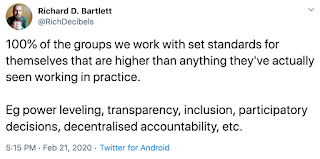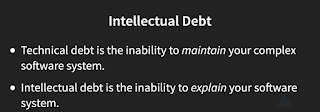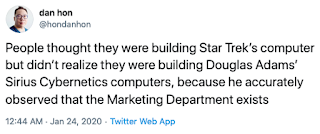Random highlights of the Well's state of the world in 2020
I always enjoy the Well's annual State of the World discussion. This year's was no exception . It's great that this long-lived community open up this particular thread for everyone to enjoy. Some of the highlights for me in the 2020 SotW follow. The state of tech, and the state of Making, mostly. Bruce Sterling provided an intro, setting out that everywhere has the same malaise, now. Dubai and Estonia are no longer interesting tech innovators; India is changing too. So in MMXX, we're in a world situation that claims to be post-global and post-Internet and post world-trade, where everybody wants to take back control, be great again, assure sovereign cyberspace, set tariffs, jail immigrant tots, beat up ethnic minorities, nurture billionaires, ignore science, and reduce education to assure that there are fewer brainy chicks -- but in practice, there's no big difference among the players. They ALL do that. There's next to no genuine cultural variety.


